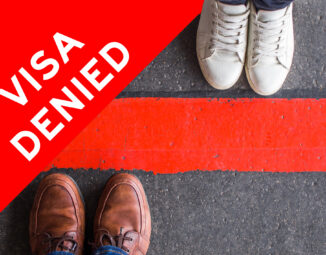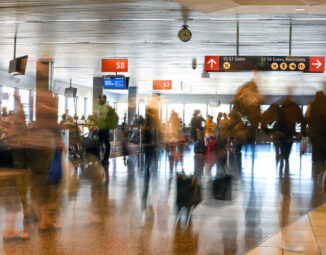Even Bears Need Visas: Immigration Law Stalls Kiwi’s Dream of Playing American Football
New Zealander, Paul Lasike, always dreamed of playing American football. This 5’11”, 232 lb. Auckland native came to the United States on a scholarship to Brigham Young University, where he played rugby, but his heart was on the gridiron. Though unselected in the 2015 NFL draft, Lasike joined the Arizona Cardinals as an undrafted free agent. Unfortunately, he failed to make the Cardinals’ 53 man roster and was let go by the Arizona team. The Kiwi was given another chance to pursue his NFL dream when the Chicago Bears signed him earlier this week for their practice squad. However, just as Lasike was preparing for his grand welcome to the Windy City, U.S. immigration law forced the Bears to punt on their newest practice squader because Lasike’s visa does not authorize him to play for the Chicago team.
Nearly all employment-based visas in the U.S. are employer specific, meaning that it is the employer who files the visa application, and approval and validity are contingent upon the foreign national working solely for his or her sponsoring employer. If the employee receives a job offer elsewhere a new visa petition needs to be filed. When Lasike was dropped from would be sponsor Arizona, his visa status also fell into jeopardy. He was faced with either finding a new team or very possibly leaving the country. The offer by Chicago breathed new hope into Lasike’s NFL dream.
Lasike’s journey is typical of most foreign athletes in the United States. In April 2014 HRLegalist described the path that most foreign athletes must travel to play professional sports in the United States. According to U.S. immigration law, foreign athletes of extraordinary ability, like Lasike, may apply for an O-1 or a P-1 visa. The O visa classification provides admission to the United States for persons with extraordinary ability in athletics, sciences, arts, education, or business and is awarded for an initial period of a maximum of three years. An extension of stay may be authorized in increments of up to one year. The P visa is similar and is available to athletes (and others) who enjoy “international recognition,” defined as “a degree of skill and recognition substantially above that ordinarily encountered, to the extent that such achievement is renowned, leading or well-known in more than one country.” P visas are awarded for an initial period of five years, renewable once for a second five-year period. Both the O and P visa require an employer to petition the U.S. government on the alien’s behalf. Both visas are nonimmigrant visas and before the expiration of the visa holder’s period of stay, he must: (1) change status to another nonimmigrant visa category; (2) adjust status to that of permanent resident; or (3) return to his home country.
Chicago Bears’ immigration counsel is likely, at this moment, preparing a new visa petition and submitting it with all the requisite supporting documentation so that Lasike can continue playing on the practice squad. Ordinarily, the backlog for visa petitions means there is a wait of up to five months or more for most visas to be approved. However, the United States Citizenship and Immigration Service (USCIS) provides an expedited service for most employment based visa categories, including the O-1 and P-1 visas. For an additional fee of $1225 USCIS will guarantee a response within fifteen calendar days. So, if the Bears act quickly and file a change of employer petition by the end of the week, Lasike will be able to suit up in Chicago’s navy blue and orange by the end of September, in time for the Bears’ rumble against the Seahawks on the 24th. Of course, it is also quite likely that Chicago mayor, Rahm Emanuel, and Illinois Senators Dick Durbin (D) and Mark Kirk (R) will be strong advocates for an even speedier visa approval for the Kiwi fullback.
So, it’s safe to say that Paul Lasike’s dream of playing for the NFL is delayed, but not ended. By the time his new visa is approved he will have memorized the words to “Bear Down, Chicago Bears,” and maybe even learn the fine art of roasting a brat. Not a bad way for this son of New Zealand to begin his football career.



